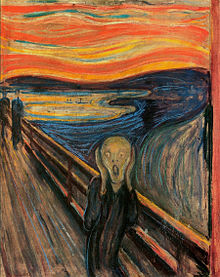Magic Mental Meds Make Me Mad


Just negotiating the names of the medication is enough to make you want to go postal. Citing a few of the many names: ziprasidone, quetiapine, fluoxetine, citlopram are the actual names of medication that is marketed by the Drug Companies as Geodan Zelox, Seroquel, Prozac, and Celexa respectively. The long titles generally ending in “one, tine, pram, pion or pam are the clinical names of these drugs. The drug companies have come up with their own name while they hold the patent on the drug. Clonazepam is Klonopin a trade name in the USA by Roche. The same drug is called Rivotril or Rivatril in the rest of the world. Klonopin is a benzopiaprene, which is a fusion of bezene and diazipine. Diazipine is a heterocyclic compound. This all leads one down the chemical rabbit hole where I don’t want to go.
It is enough to know that the clinical name for a drug is what will be used in studies especially those by academia, NIMH (National Institute of Mental Health), and other agencies. The trade names apply as long as the drug company owns the patent on the drug. After it becomes generic, and no longer a big money maker for company that brought the drug to market, the name changes and in some cases reverts to its actual scientific name. Lamictal by GlaxoSmithKline is lamotrigine, originally an anti-epileptic drug now widely used to treat bi-polar disorder. This drug can now be found as a generic under the lamotrigine name. Anyone taking a psycho-active drug should know the scientific name of the drugs they take for several reasons: because a generic drug using that name may be available, there may be scientific studies not publicized by the drug companies that contradict their findings, and the reason to take a drug should be based on the best available information.
Should you take these drugs at all? This is a question that many answer by saying you shouldn’t. There are people with bi-polar disorder, schizophrenia, depression, anxiety, and autism, who believe the drugs poison them. They see alternate ways of healing through cognitive therapy (thought and habit changing) or psychodynamic therapy (working on the emotions), stress reduction by exercise and healthy eating, mind exercises including meditation, and herbs are often cited as means to resolution of mental disorder. Dr. Peter Breggin believes the use of psychoactive medications should be replaced by psychotherapy. He sees American culture as overly dependent on these drugs, which in his opinion have dubious merit. “Mad in America” is a book written by medical journalist Robert Whitaker that offers the idea that antipsychotic medicines have a 50-year record of doing more harm than good.
I do not come down on this side of the issue. Drugs for various conditions have been with man, since the beginning of our consciousness. New understanding about the brain and how it operates have opened the door to preventative medicine. I am for science. I am for psychiatry. More power to the ones who decide against using medication for their treatment. For me I know the drugs I take work, but that doesn’t lessen many of my concerns.
Do statistics show that medication works in relieving many symptoms of mental illness? I find lots of information about the percentage of people with mental illness, but little that relates to success. Is that because there is no mechanism for capturing these statistics? I don’t imagine doctors, clinicians, and psychiatrists calculate their percentage of success; nor do I see any national clearing house for assembling this information. What we do have is lots of survey information about the prevalence of mental illness. The National Health Interview Survey (NHIS) conducted by the US Census found that 11% of all Americans were sad (depressed) or hopeless for part or all of the 30 days before the survey. The National Institute for Mental Health (NIMH) using a survey conducted through SAMSA –these acronyms can make you loony- found that overall 4.5% of Americans suffer from severe mental illness. 2.2% have severe bipolar disorder. 2.6% of adults (non-institutionalized) suffered bipolar disorder for a12 month duration. Does this mean that 0.4 % recovered? Hard to know for it is challenging to figure out what really these statistics mean. The SAMSA survey was based on 3,600 interviewees in the big population states such as California, New York, and Texas, and only 900 interviewees in the small population states. I wonder if there isn’t a bias here, after all living out on the lonely range in South Dakota or living poor in the South might be more depressing than living amongst many people with plenty of money.
With a US population of 308 million people, 11% are sad. That is 3.4 million depressed people. This number needs to be downward adjusted for the young, and significantly increased for the old because 32% of people over 65 are depressed. There are 4.5 % that are severely mentally ill. That is 1.380 million people – almost 1.5 million- crazy people. Understanding these statistics is a big effort because of the questions asked and who is answering. When the government asks if you are hopeless what does that mean? The statistics are different for different ages and ethnic groups. White men commit suicide between ages of 40 and 59 more than any other group. Women are generally more depressed than men. What we do know is that mental health is a big market. It is in the interest of practitioners and pharmaceutical companies to serve our big population. Perhaps that is why more and more sad and hopeless people are diagnosed with mental problems. The means that the medical establishment most commonly chooses to treat mental illness is drugs. People were treated with anti-depressants 75.3% of the time in 2007, while it was only 73.8 % of the time in 1998. I am one of those diagnosed people, one of those mental health statistics. I am one who takes drugs.
Thus I take medication willfully, but the questions remain “How much to take and what to take.” I believe one should take as little as possible and as few different medications as possible. These drugs are very powerful. They have many side effects and those effects depend on what you take and how much you take. Seroquel (quetiapine) by AstraZeneca made me disassociate with everything around me. I felt like a zombie on it. I had to stop taking Seroquel. Depacote (valproic acid or divalproex sodium) by Abbott Laboratories made me feel like I was boxed in. I felt like I wasn’t me. I was some being in a small container that allowed no room to feel up or down. I took this for a while before I had enough courage to say this drug is killing me as a person. It also has the side effect of weight gain. I gained 50 lbs taking this drug. I also had unsteady balance on the drug, but I didn’t have dizziness, vomiting, fever, diarrhea, or hallucinations other common side effects of the drug. I now take lamotrigene and Abilify by Bristol- Myers Squibb. I take only small amounts. Of Abilify I take only 5mgs per day, a very low dose. Yet even these drugs concern me. I still have trouble with weight gain. Abilify’s manufacturer believes it doesn’t cause weight gain, yet other sources do not endorse this position. Lamotrigine and Abilify together make me have a tremor, which I now have to take another medication to relieve. This brings me to the issue of long term harm.
The long term harm these drugs do is of great concern. Weight gain from the drugs leads to the possible advent of diabetes. The atypical antipsychotics (the atypicals are the newer medications as opposed to the old which were drugs like Thorazine) increase the risk of diabetes, some studies have suggested. The risk is highest for Geodon Zelox (ziprasidone) and Serolect or Serlect marketed by Abbott Laboratories and lowest for Seroquel (quetiapine) and Abilify (aripiprazole). However these studies also suggest that the risk varies depending on the user and the duration of use. I have been taking Abilify for many years. I continue to struggle with my weight and I worry about developing diabetes. This along with other such problems as liver or heart failure plagues my mind. I am glad that I haven’t gotten Stevens – Johnson syndrome, an incredible skin rash that inflames your mouth, feet and genitals. A man who shared a room with me when I was hospitalized had Stevens – Johnson syndrome. When I look at this situation I am not sure what I am getting all the right information. This leads me to my next topic “Who benefits.”
First I believe the patient benefits from psychoactive drugs. I know my bipolar disorder was and is controlled by the medication I take. However I also believe benefits abound to the clinical professions and the pharmaceutical companies. Psychiatrists have in a large measure abandoned talk therapy to medication therapy. This is not all practitioners – mine gives me both talk and medicine- but many especially those who work for HMO’s and those who see public assistance patients have become pill dispensers. It is easier, cheaper, and faster to supply drugs than to listen to the hour long blathering of the sad, hopeless, and maniacal human beings. This is what I hear from people in NAMI and DBSA concerning most of the help they get. They take the drugs and put up with the side effects, but are unhappy doing this.
The pharmaceutical companies benefit as long as they can hold the patent on their magic meds. Consider the money made on Abilify by Bristol Myers Squibb which costs in the 100s of dollar a month with out health insurance. With insurance Abilify costs me 60 dollars a month times 12 months that’s $720 a year. Abilify is being prescribed to more and more patients. Say of the people with severe mental illness half are prescribed a drug like Abilify. Using an estimate of $720 x .75 million people this means 540 million dollars a year. (I bet my numbers are low.) There is the cost to these companies of developing the drugs to be considered. Current figures estimate a cost of nearly $1.8 billion across 25 separate projects to successfully launch a new drug. Therefore it can take up to four or five years before a pharmaceutical maker makes a profit. Citing the difficulty of creating new drugs two major pharmaceutical companies GlaxoSmithkline and AstraZeneca have announced they will terminate their psychiatric medication development programs. It is in the interest of the drug companies to get their medications on the market as soon as possible. Therein lays a problem.
The Pharmaceutical companies test their own products because the NIMH does not have the money to do it. Tests are costly. The tendency is to test drugs for a short time. Beneficial results in the short term do not show the long term effects of the drugs. This has been cited as an issue in relationship to certain depression relieving drugs. Millions were sold without clear long term evidence that they relieved depression. Thus the whole situation leaves me in a quandary. Making medication decisions on evidence that is not inclusive or exhaustive leaves me damn angry. I proceed knowing that medication has worked for me in the past, but is it killing my future? No one seems to know. My psychiatrist doesn’t know. The drug company’s literature can’t be relied upon as the absolute truth. To much of it is colored by profit making. The bottom line rules and the patient is the guinea pig. I could squeal, and leave behind what has proven so far to work for me, but if I do so I wonder if I won’t go mad in the mental sense. I won’t go there, but I will keep myself informed as much as possible. It behooves every client be in the know about what they ingest.




